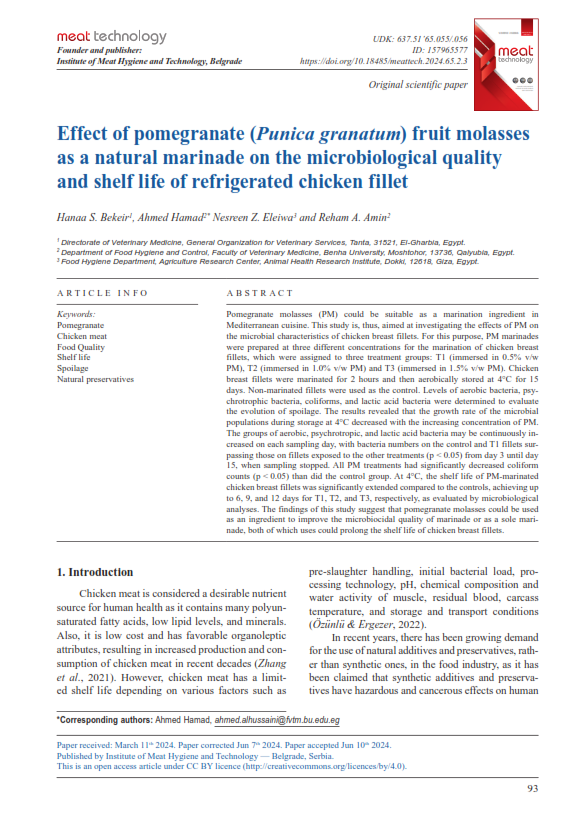Effect of pomegranate (Punica granatum) fruit molasses as a natural marinade on the microbiological quality and shelf life of refrigerated chicken fillet
Abstract
Pomegranate molasses (PM) could be suitable as a marination ingredient in Mediterranean cuisine. This study is, thus, aimed at investigating the effects of PM on the microbial characteristics of chicken breast fillets. For this purpose, PM marinades were prepared at three different concentrations for the marination of chicken breast fillets, which were assigned to three treatment groups: T1 (immersed in 0.5 % v/w PM), T2 (immersed in 1.0 % v/w PM) and T3 (immersed in 1.5 % v/w PM). Chicken breast fillets were marinated for 2 hours and then aerobically stored at 4°C for 15 days. Non-marinated fillets were used as the control. Levels of aerobic bacteria, psychrotrophic bacteria, coliforms, and lactic acid bacteria were determined to evaluate the evolution of spoilage. The results revealed that the growth rate of the microbial populations during storage at 4°C decreased with the increasing concentration of PM. The groups of aerobic, psychrotropic, and lactic acid bacteria may be continuously increased on each sampling day, with bacteria numbers on the control and T1 fillets surpassing those on fillets exposed to the other treatments (p < 0.05) from day 3 until day 15, when sampling stopped. All PM treatments had significantly decreased coliform counts (p < 0.05) than did the control group. At 4°C, the shelf life of PM-marinated chicken breast fillets was significantly extended compared to the controls, achieving up to 6, 9, and 12 days for T1, T2, and T3, respectively, as evaluated by microbiological analyses. The findings of this study suggest that pomegranate molasses could be used as an ingredient to improve the microbiocidal quality of marinade or as a sole marinade, both of which uses could prolong the shelf life of chicken breast fillets.





